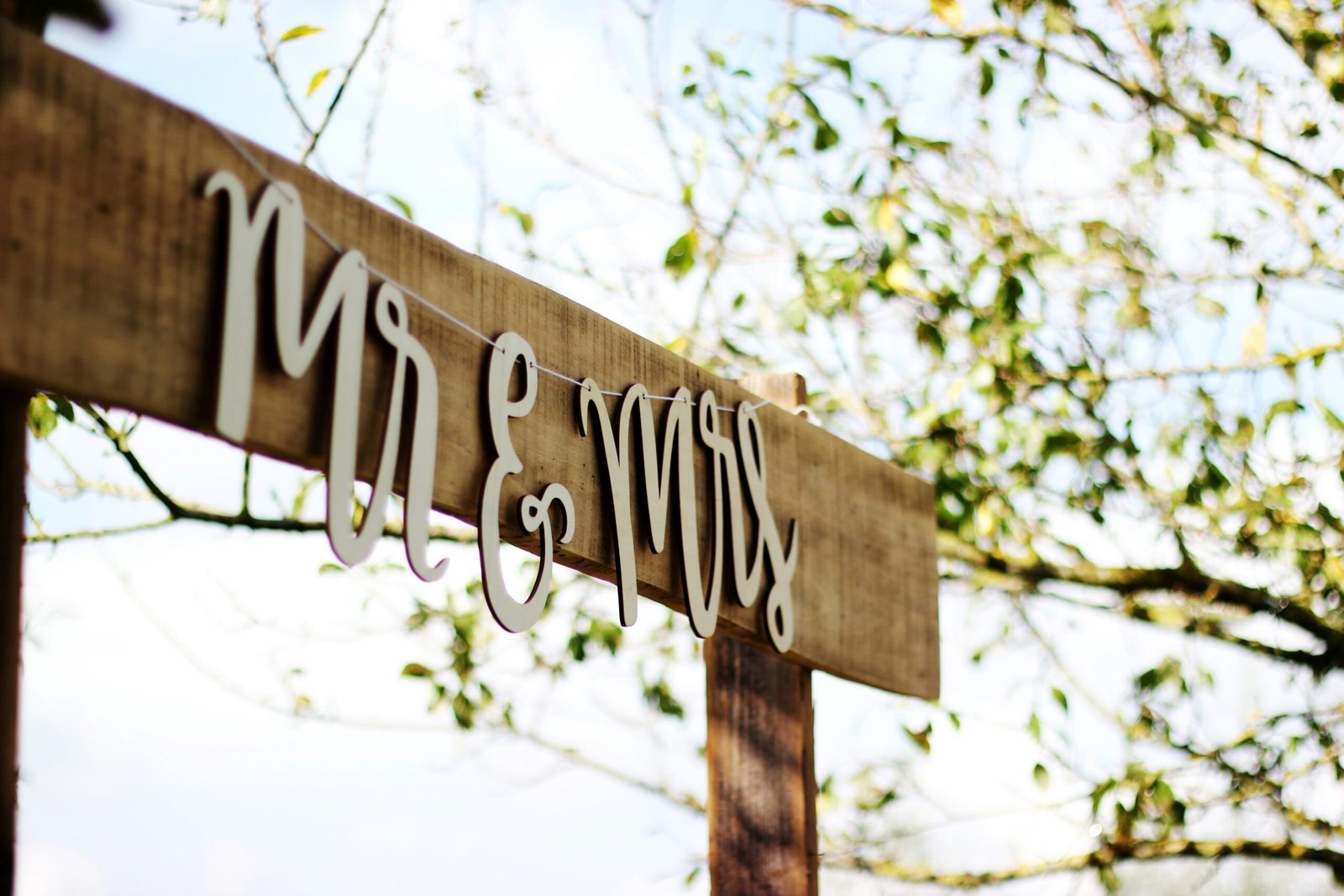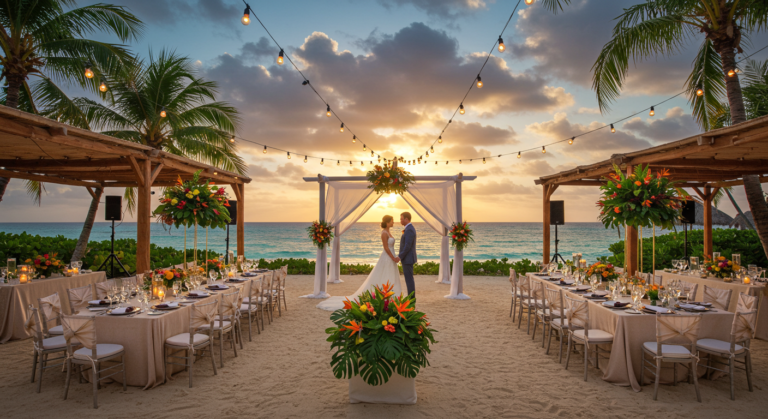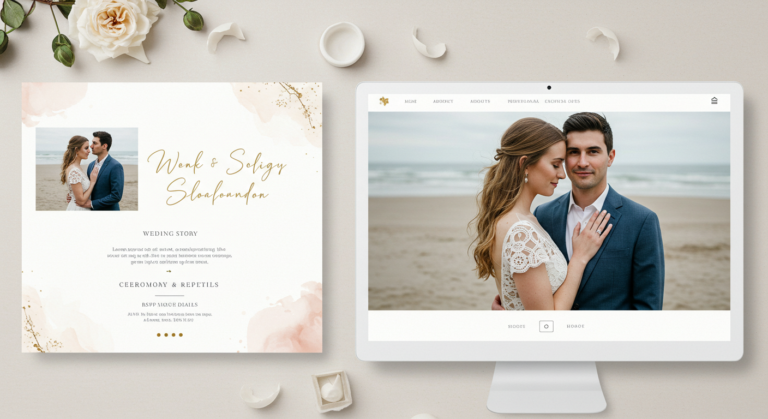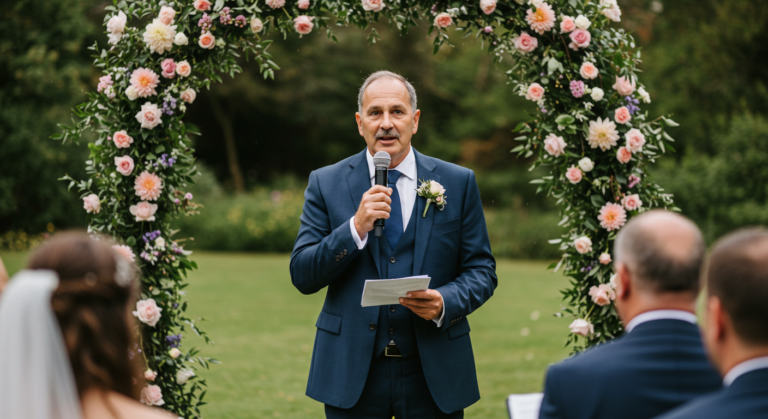The Unplugged Wedding: Weighing the Pros and Cons

Introduction to Unplugged Weddings
An unplugged wedding ceremony is a modern trend that encourages guests to disconnect from their electronic devices, such as smartphones and tablets, during the critical moments of the event. The core principle behind this concept is to create a more intimate and engaging atmosphere for both the couple and their attendees. In essence, unplugged weddings prioritize the experience of the present over the distractions of technology, allowing guests to be fully immersed in the celebration of love and commitment.
The rise of unplugged weddings can be attributed to several factors. In contemporary society, where individuals are often glued to their devices, couples are increasingly seeking ways to foster genuine connections amongst their guests. By discouraging the use of electronic devices, couples aim to promote interaction and engagement, encouraging everyone present to share in the emotions and significance of the occasion. This practice not only enhances the overall experience for the attendees but also allows professional photographers to capture authentic, uninterrupted moments without the interference of smartphones or tablets being raised to take pictures.
Furthermore, unplugged weddings reflect a broader societal shift towards mindfulness and living in the moment. As people become more aware of the impact of their digital habits, many are choosing to adopt practices that emphasize presence over virtual interaction. This trend resonates particularly well with couples who value the sanctity of their wedding vows and wish to maintain the ceremony’s focus on the meaningful commitment being made. As a result, unplugged weddings have gained traction, with many couples opting for sign placements and announcements to effectively communicate their preferences to guests.
The Benefits of an Unplugged Wedding
An unplugged wedding, where guests are requested to refrain from using their devices during the ceremony, offers several significant advantages that enhance the overall experience for both the couple and their attendees. One of the primary benefits is the creation of a more intimate and memorable atmosphere. When guests are encouraged to focus on the moment rather than their screens, it promotes genuine connections and deeper emotional engagement. Witnessing the couple exchange vows, without distractions, allows attendees to fully immerse themselves in the experience, fostering a sense of unity and shared joy.
Another key advantage of an unplugged wedding is that it enables both the couple and their guests to be fully present. In today’s digital age, it’s common to see guests distracted by their smartphones, capturing every moment rather than experiencing it firsthand. By requesting an unplugged environment, couples can ensure that their loved ones are attentive and engaged, contributing to a more heartfelt celebration. This mindful presence also reduces the likelihood of awkward interruptions, which can detract from the solemnity of the occasion.
Moreover, from a photography perspective, an unplugged wedding can significantly enhance the quality of the professional photographs taken during the ceremony. When guests are not using their cameras or phones, photographers can capture unobstructed, candid moments that tell a beautiful story of the day. This enables the couple to receive high-quality images without the risk of unsightly devices appearing in their cherished memories. By prioritizing the experience of the ceremony over the urge to capture every moment on a personal device, an unplugged wedding ultimately leads to a more authentic recollection of the special day.
Creating a Captivating Guest Experience
The concept of an unplugged wedding is gaining traction among couples who wish to cultivate a more engaging atmosphere that emphasizes genuine interactions among their guests. By prohibiting mobile devices during the ceremony and key portions of the reception, couples can foster deeper connections and ensure that attendees are present in the moment, rather than distracted by screens. This approach invites guests to fully immerse themselves in the ceremony, allowing them to witness and savor shared experiences without the interruption of technology.
Encouraging interaction among attendees is a primary advantage of an unplugged wedding. Couples can facilitate this by designing activities that promote mingling. For instance, incorporating icebreaker games or interactive features, such as a photo booth with props, can serve to bridge acquaintance gaps and spark conversations. A thoughtfully curated seating arrangement can also enhance guests’ opportunities to interact, as placing individuals with common interests or backgrounds together can lead to enriched conversations and connections that may last beyond the wedding day.
Moreover, creating an atmosphere that encourages meaningful dialogue can elevate the overall guest experience. Couples might consider integrating personal storytelling elements into their wedding, such as sharing how they met or significant anecdotes throughout the event. This adds an intimate touch, inviting guests to engage more personally and allowing them to contribute their stories, thereby enriching the communal feel of the occasion.
Finally, crafting a unique setting devoid of typical digital interruptions significantly contributes to the unplugged wedding experience. Choosing a scenic venue or incorporating nature-themed decor can enhance the ambience and evoke a sense of serenity. By prioritizing human connection over digital engagement, couples can ensure an unforgettable experience that both the couple and their loved ones will cherish long after the event concludes.
Potential Drawbacks of Unplugged Weddings
While the trend of unplugged weddings comes with numerous benefits, it is essential to consider the potential drawbacks that may arise for couples opting for this approach. One of the more notable concerns involves guests feeling disappointed due to their inability to capture personal photographs or videos during the ceremony. Many attendees cherish the opportunity to document special moments for their own memories and to share their experiences on social media. The complete restriction of electronic devices can lead to feelings of exclusion, as guests might view it as a barrier to their participation in the celebration.
Another issue stems from the generational divide in perspectives about technology. Younger generations, having grown up in a digitally connected age, often find it difficult to detach from their devices during significant life events. The expectation to document experiences for social media may clash with the couple’s desire for a more focused, intimate atmosphere. This disconnect could inadvertently cause tension between the couple and their guests, as some family members or friends may perceive unplugged weddings as an unwelcome change to traditional practices.
Moreover, couples must consider the logistical implications of an unplugged wedding. For instance, how will this policy be communicated to guests effectively? Misunderstandings about device usage can lead to unintended consequences, including feelings of resentment among guests who may not have understood the couple’s wishes prior to the event. To avoid these complications, clear communication regarding the unplugged concept is crucial, alongside the potential frustration felt by guests who feel compelled to shift their focus away from their technology during an event where they may wish to capture personal memories.
How to Communicate the Unplugged Policy
Effectively communicating an unplugged wedding policy to guests is essential for ensuring a serene and focused celebration. The first step in this process is to thoughtfully word the invitation. Consider including a gentle note on the invitation itself, perhaps phrased as, “We kindly request your presence to celebrate our special day unplugged, allowing everyone to experience the moment fully.” This approach clearly informs guests about your intentions while maintaining a polite tone.
In addition to the invitation, utilizing signage during the ceremony can reinforce the unplugged policy. Elegant signs placed at strategic locations, such as the entrance and near the seating area, can serve as visual reminders. A well-crafted sign could read, “To honor the couple, please put away your devices during the ceremony. Your presence means the world to us.” This type of communication combines clarity with an emotional appeal, motivating guests to comply with the request.
Moreover, preparing guests ahead of time can significantly reduce any potential resentment. Consider sending a personalized message via email or a wedding website to share your unplugged vision. Express your desire for everyone to immerse themselves in the moment rather than through a screen. You may also want to highlight that a professional photographer will be present to capture every memorable moment, ensuring guests that they can later access beautiful images of the day.
Lastly, encouraging guests to be present is key; you can convey this sentiment by expressing the importance of their involvement in the celebration. A kind reminder that you wish to create lasting memories together without distractions can encourage a positive response. By combining these strategies, couples can effectively communicate their unplugged wedding policy while fostering an environment of respect and understanding among their guests.
Alternatives to Going Completely Unplugged
For couples who appreciate the essence of an unplugged wedding but are also inclined to incorporate technology in moderation, hybrid options offer a balanced approach. By designating specific moments for photography, couples can maintain the integrity of their ceremony while also capturing memories. This method allows guests to experience the event without distractions, yet still prepares them to partake in a few key photo opportunities that can be shared later. For instance, couples may choose to allow photographs during the rehearsal dinner or the reception, while asking guests to refrain during the actual ceremony.
Another effective strategy is to work with a professional photographer who can capture the day’s most cherished moments. This enables couples to share high-quality images on social media without encouraging a flurry of amateur photography during significant moments, which can detract from the experience. By setting this precedent, couples can ensure that their friends and family are engaged in the ceremony, while still having the option to celebrate their love story online after the event. The careful coordination of these guidelines facilitates a more meaningful experience for both the couple and their guests.
Couples might also consider allocating specific times for guests to take photos, such as after the ceremony or during key reception milestones like the first dance or cake cutting. This way, attendees can capture and share their favorite moments without overshadowing the significance of the event. Moreover, placing an emphasis on professional photography ensures that every precious moment is immortalized, allowing couples to enjoy their day while relishing the knowledge that beautiful memories will be documented for later viewing.
Guest Etiquette at Unplugged Weddings
Attending an unplugged wedding can be a unique and enriching experience, requiring guests to adapt their behavior to respect the couple’s wishes. Unplugged weddings emphasize the importance of being present during the ceremony and celebrating the event with heartfelt participation instead of through the lens of a smartphone. As a guest, it is essential to adhere to the guidelines set by the couple and honor the intention behind their choice to limit the use of devices.
Upon arriving at the venue, guests should look for any signage indicating that the wedding is unplugged. It is courteous to comply with these instructions. Many couples will request that attendees refrain from using cameras or phones during the ceremony, ensuring an uninterrupted and intimate experience for everyone involved. In instances where guests may be tempted to capture precious moments, consider that professional photographers are hired to document the event proficiently.
Instead of relying on devices, guests can actively participate in the celebration by engaging with other attendees and contributing to the ambiance of the occasion. Interacting with fellow guests, sharing stories, and embodying the joyous spirit of the event foster memorable experiences. For capturing memories, many couples suggest that guests write personal notes or share memories in a designated guest book, which can be a terrific alternative to photographs.
Furthermore, social media enthusiasts can look forward to the couple’s designated post-wedding sharing time, where they may have planned to release a curated collection of professional photos after the event. This will allow guests to relive the moments they may have missed whilst ensuring the couple’s preference for an unplugged celebration is respected.Ultimately, being a considerate guest at an unplugged wedding contributes positively to the overall experience for both the couple and all attendees.
Real-Life Experiences: Unplugged Wedding Stories
Unplugged weddings have increasingly gained popularity, with many couples opting for this unique approach to their special day. Numerous couples who have taken the plunge into an unplugged wedding share overwhelmingly positive experiences. For instance, one couple recounted how they felt an intense sense of intimacy during their ceremony, as their guests were fully present and engaged, rather than distracted by their devices. They emphasized that this absence of technology allowed for authentic interactions and deeper connections, making their wedding experience truly memorable.
Guests, too, have offered insightful testimonials about their unplugged experiences. A guest at an unplugged wedding shared the delight of witnessing a ceremony without the disruption of smartphones. “It felt refreshing to be part of an event where everyone was there for each other, and not focused on capturing moments for social media,” she remarked. This sentiment echoes among many who have attended such ceremonies; the focus on shared experiences over individual documentation often enhances overall enjoyment.
Despite the benefits, some couples faced challenges along the way. One couple mentioned the difficulty of communicating their unplugged intentions to guests prior to the wedding day. It was essential for them to ensure that loved ones understood the significance of this choice, as they encountered some hesitation from guests who may have felt uncomfortable leaving their devices behind. However, through clear communication, signage, and reminders, they ultimately facilitated a smooth experience that everyone cherished.
These anecdotes illustrate the value of unplugged weddings and offer insights into the potential challenges and rewards. As couples navigate their wedding journey, considering these real-life testimonials may help them make informed decisions that align with their vision for a memorable celebration.
Conclusion: Is an Unplugged Wedding Right for You?
Choosing whether to have an unplugged wedding is a significant decision that prospective couples must carefully consider. Throughout this discussion, various pros and cons have been highlighted, each with its implications for the event’s atmosphere and the experience of both the couple and their guests. The primary advantage of hosting an unplugged wedding lies in the intimacy it encourages. When guests are not preoccupied with their devices, they are more likely to engage fully with the ceremony, creating a shared experience that enhances emotional connections. This setting allows couples to embrace the present, cherishing each moment without distractions, which is often valued in such a memorable event.
Nevertheless, there are important considerations on the other side of the spectrum. Some guests may feel an unplugged wedding curtails their ability to capture memories through photographs. It is essential to weigh the importance of personal documentation versus the overall environment you aim to cultivate during the celebration. The decision often involves analyzing your values as a couple — are shared moments more important than digital memories? Recognizing that preferences differ among guests can also help guide this choice, as families and friends may have variances in their comfort with the concept of unplugging.
Ultimately, there is no blanket solution that fits all couples or scenarios. Each relationship is unique and calls for considerations that reflect personal desires and values. As you weigh the upsides and downsides of an unplugged wedding, take time to communicate with your partner about what feels right for both of you. By thoughtfully contemplating these elements, you can make an informed decision that aligns with your vision for the special day, ensuring it resonates with your ideals and preferences.





